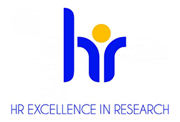By drawing on the proven skills of its researchers, it guarantees the excellence of its research and the attractiveness of the institution.
This strategy is coupled with a determination to provide the most efficient working environment for researchers, lecturers and all staff.
In 2017, Université Clermont Auvergne embarked on the HRS4R (Human Resources Strategy for Researchers) initiative, which culminated in the submission of the application in 2018 and the award of the label in March 2019.
A quality approach at the heart of our human resources strategy
As part of the accreditation process, the Université Clermont Auvergne adopted a plan of 20 actions, divided into four themes, aimed at improving recruitment practices and the working environment for teacher-researchers and researchers.
Five new actions were then added to the initial action plan.

